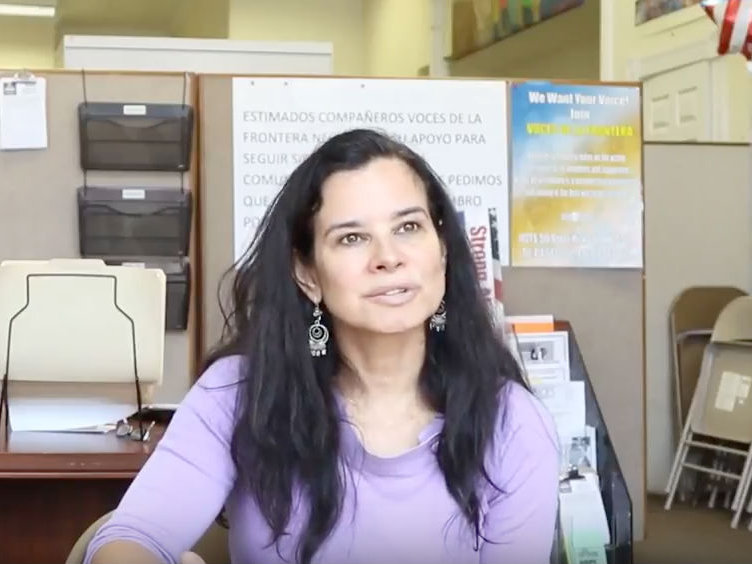Editor’s note: This piece is one of an occasional series on nonprofit leaders in Milwaukee. The responses have been edited for length and clarity.
Christine Neumann–Ortiz is the founder and executive director of Voces De La Frontera, an organization that serves low-wage and immigrant families in the city through social justice reform, legal and social counseling. Since Voces De La Frontera was started almost 20 years ago, Neumann-Ortiz has helped organize and lead social justice marches across the state. Most notably in 2007, she led a nationally recognized immigrant rights march with more than 80,000 participants on the streets of Milwaukee.
Milwaukee NNS: When were you first exposed to activism as a way of life?
Christine Neumann-Ortiz: It was when I was a student at the University of Wisconsin-Madison, because there is a rich culture of activism there. But before that, it was really about the values that I was raised with. My mother is originally from Mexico, and she developed in me a strong sense of pride in my heritage. Still, it wasn’t until my early 20s that I was exposed to organizing, which is basically people coming together and collectively coming up with ways to challenge social injustice, and so I have been committed to that my entire life.
What makes you good at leading Voces De La Frontera?
By nature, I am a very collaborative person – I am not a competitive person – and that’s what organizing is about, to try things and figure things out together.
What is your greatest challenge right now?
Continuing to get the word out – among the Latino and immigrant community and others – that it is so important that we fight back against Donald Trump. Specifically, what’s been created around him has really galvanized a movement against immigrants.
What traits do you feel embody effective leadership?
I think a critical quality is humility, because if you are driven by your ego and you allow it to influence your decisions, then you cannot get far at all. With that naturally comes really being self-aware and treating people with a lot of respect and the dignity that they deserve.
Tell us about a defining moment in your career.
One of my personal highlights was in 2014. We saw an uptick in deportations and racial profiling, and we responded to that by really organizing around it. One of the actions that we did was blocking the federal Immigration and Customs Enforcement offices Downtown. We formed a human chain around the driveway where the immigration vans leave to pick people up from around the state. We did that for half a day, and we prevented immigration officials from leaving their offices. To me, that was a very powerful moment, and it reminded me of the civil rights movement where people challenged racial segregation with "people power." Fortunately, that did result in a change of immigration policies related to ICE presence in local courtrooms and how they were operating.
You were very involved in trying to turn out Latino voters in the presidential election. What happens now that the election is over?
Voces organizes 365 days of a year, because we know that it is not enough to just vote and expect things to come our way. It does take a social movement to create the pressure that is necessary to achieve the goals that we want. It’s not just limited to voting, however. Voting is absolutely essential, because it affects the conditions in which we organize. We would rather have someone in power that supports our agenda, but now it means we have to keep fighting to create the pressure to drive Congress around the policies that we want passed.







